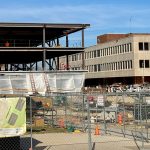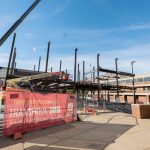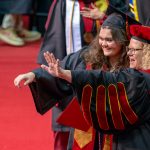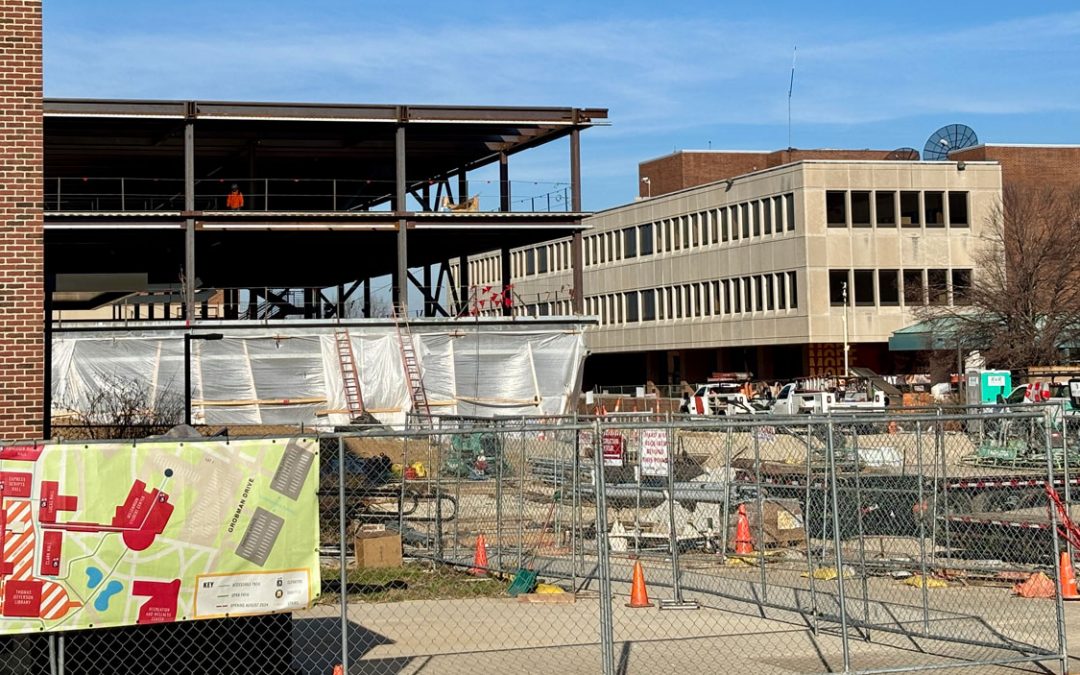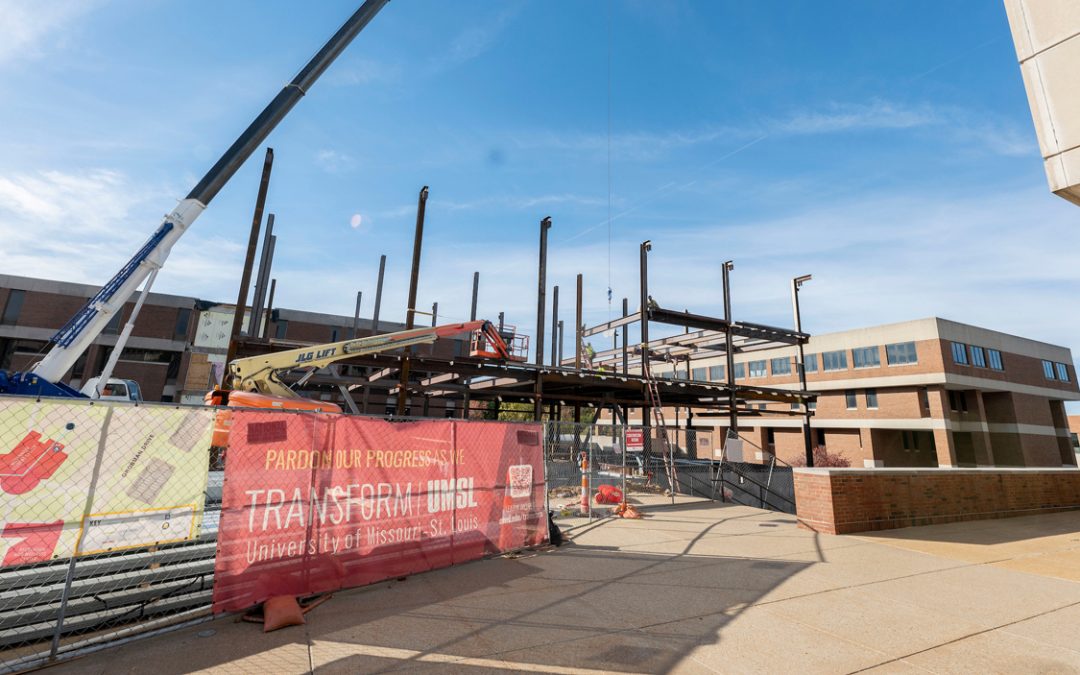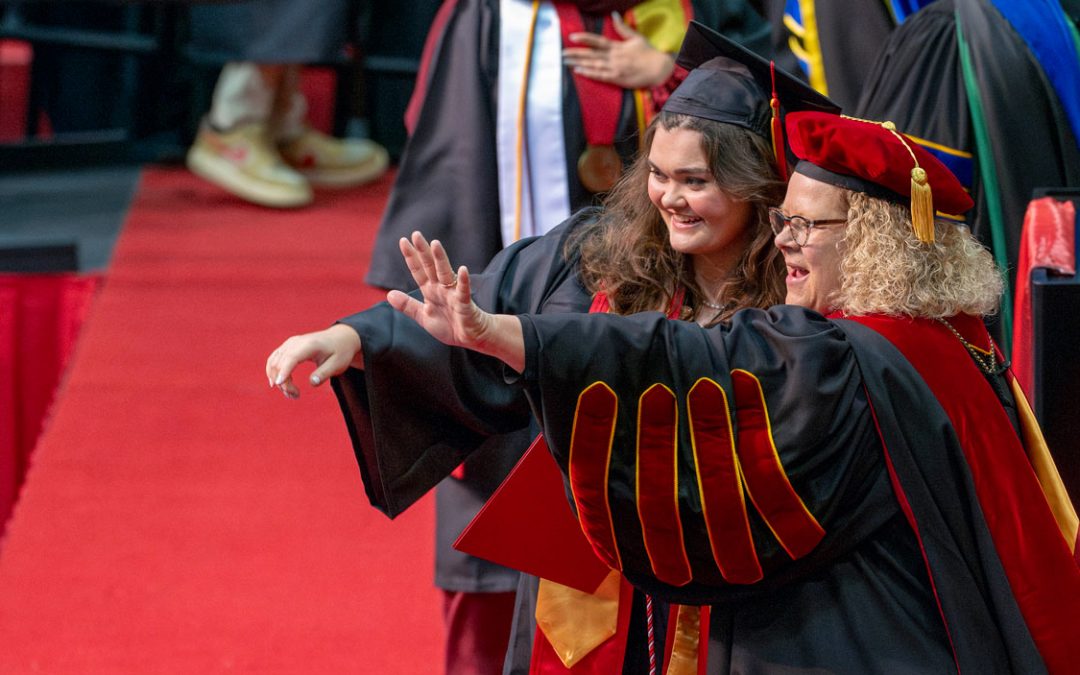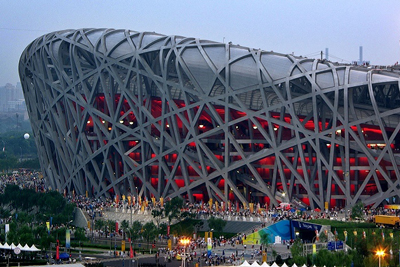
Beijing National Stadium, also known as the Bird's Nest. (Photo courtesy of 2.5 China Mainland via Wikimedia Commons)
Four years after the Beijing Olympic Games many of the venues built for the summer contest are underused and draining public finances, according to a recent Reuters article.
Among the structures languishing were two of the most heralded attractions – the main stadium nicknamed the “Bird’s Nest” and the “Water Cube” aquatics center.
“They were given these huge venues … and they had no event management experience, and they weren’t allowed to get any before the Olympic Games,” Susan Brownell, professor of anthropology at the University of Missouri–St. Louis and an expert on Chinese sports is quoted as saying in the Reuters article.
“After the Games were over they were learning from scratch in terms of how to manage an event,” she added.
Brownell is the author of “Beijing’s Games: What the Olympics Mean to China.”



